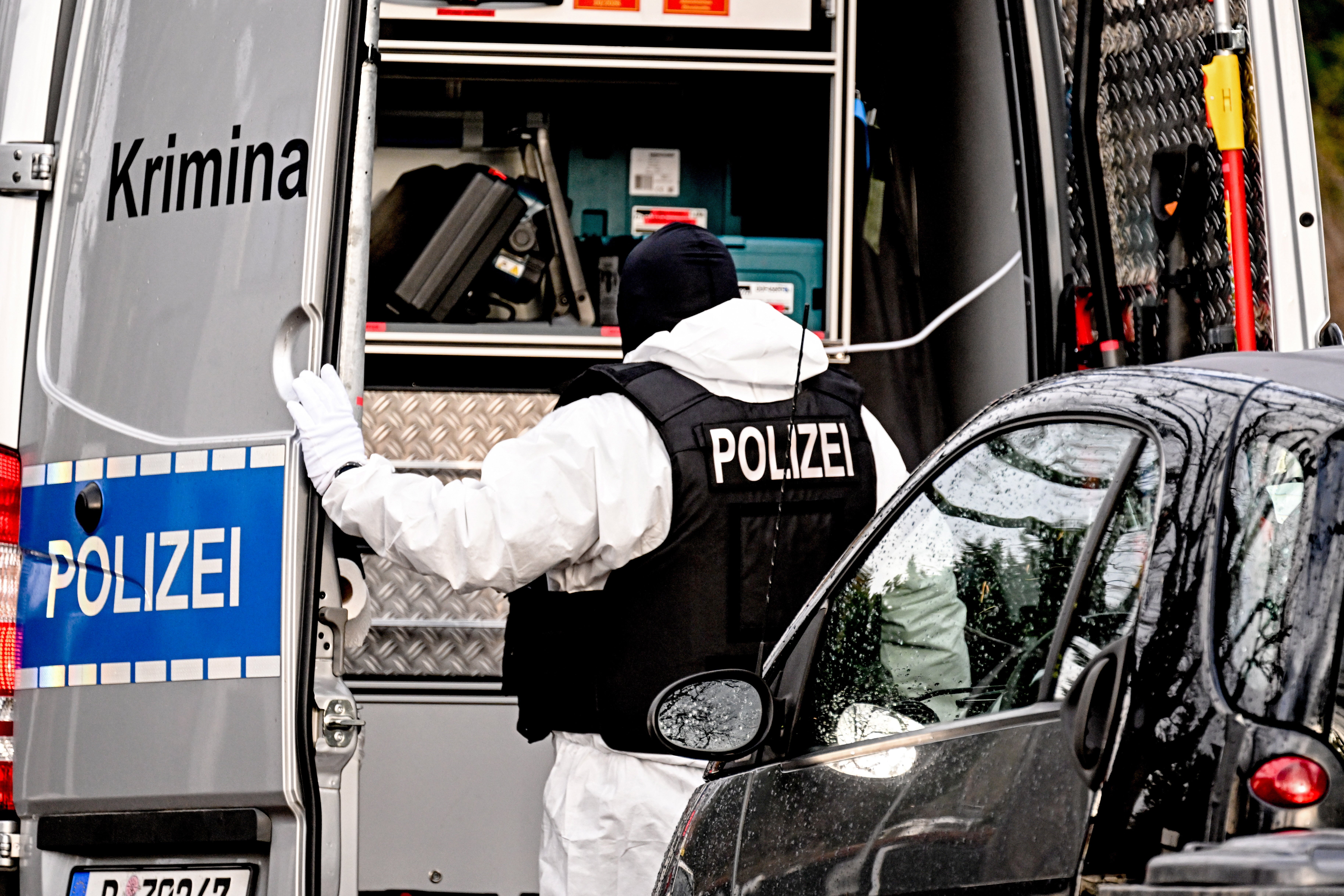‘Enemies of democracy’: German police arrest far-right extremists and foil ‘plot to overthrow state’
Plotters allegedly planned to storm the Reichstag and seize power
Far-right extremists driven by online conspiracy theories have been accused of plotting to overthrow the German government in an armed coup and installing a self-styled prince as ruler.
About 3,000 police carried out a series of raids across Germany on Wednesday and arrested 25 alleged members of a group called the Reich Citizens movement.
German media reports say the group included ex-military figures and a minor aristocrat called Prince Heinrich XIII.
Justice minister Marco Buschmann described the raids as an “anti-terrorism operation”. Germany’s top security official said the group was “driven by violent coup fantasies and conspiracy ideologies.”
The group allegedly planned to storm the Reichstag building and seize power.
Prosecutors said the suspects were linked to the so-called Reichsburger (Reich Citizens) movement, whose adherents reject Germany’s postwar constitution and have called for the current government to be overthrown.
The movement, which denies the existence of the modern German state, has seen a considerable influx in the past year and presents a persistently high level of danger, said Thomas Haldenwang, head of Germany‘s domestic intelligence agency.
Federal prosecutors said a total of 22 German citizens were detained on suspicion of “membership in a terrorist organisation”, and three people, including a Russian citizen, are suspected of supporting the group.
Another 27 people were under investigation.
Interior minister Nancy Faeser said those involved in the alleged plot were “the enemies of democracy”.
“The investigations provide a glimpse into the abyss of a terrorist threat from the Reichsbuerger milieu,” she said in a statement.
Police conducted searches at 130 sites in 11 of Germany’s 16 states, including the barracks of Germany’s special unit KSK in the southwestern town of Calw, according to Der Spiegel. The unit itself has in the past been investigated over alleged far-right involvement.
A former parliamentary lawmaker from the far-right Alternative For Germany (AfD) was also among those arrested.
One person was also detained in Kitzbuehel, Austria, and another in Perugia, Italy. An active soldier who is a member of the Special Forces Command is also believed to be among those being investigated, said a spokesperson from the military intelligence service.
Italian police said they had arrested a 64-year-old former German army officer in a hotel in the central city of Perugia, where “material related to the subversive activity” of the organisation was found.
Justice minister Marco Buschmann described the raids as an “anti-terrorism operation”, adding that the suspects may have planned an armed attack on institutions of the state.

Prosecutors said that those arrested allegedly formed a “terrorist organisation with the goal of overturning the existing state order in Germany and replacing it with their own form of state, which was already in the course of being founded”.
The suspects were aware their aim could only be achieved by military means and with force, prosecutors said. Some of the group’s members had made “concrete preparations” to storm Germany’s federal parliament with a small armed group, according to prosecutors.
They added that those arrested also believed a “conglomerate of conspiracy theories consisting of narratives from the so-called Reich Citizens as well as QAnon ideology”.

Prince Heinrich was named by police as a suspected ringleader. The group planned to install Heinrich as Germany's new leader, according to prosecutors and had already contacted Russian officials with the aim to negotiate a new order in the country once the German government has been overthrown.
However, prosecutors said there is no evidence the persons contacted “responded positively to his request”.
Another person detained was identified by prosecutors as Birgit MW. According to Der Spiegel, she is a former judge and lawmaker with the AfD party which has become increasingly scrutinised by German security due to its extremist ties.
Ms Faeser said that investigations into the plot showed the threat posed by the Reichsbuerger movement.
“The investigations provide a glimpse into the abyss of a terrorist threat from the Reichsbuerger milieu,” she said in a statement, adding: “We are taking action against such endeavours with the consequences of the rule of law.
“We will continue to take this hard line.”

Officials have repeatedly warned that far-right extremists pose the biggest threat to Germany’s domestic security. This threat was highlighted by the killing of a regional politician and the deadly attack on a synagogue in 2019.
A year later, far-right extremists taking part in a protest against the country’s pandemic restrictions tried and failed to storm the Bundestag building in Berlin.
Germany’s chief federal prosecutor planned to make a statement on the case later Wednesday.
Germany’s monarchy was abolished a century ago. When the Weimar Constitution entered into force on 14 August 1919, the legal privileges and titles of German nobility were abolished. Officially, there are no princes and princesses in Germany.
Join our commenting forum
Join thought-provoking conversations, follow other Independent readers and see their replies
Comments


Bookmark popover
Removed from bookmarks